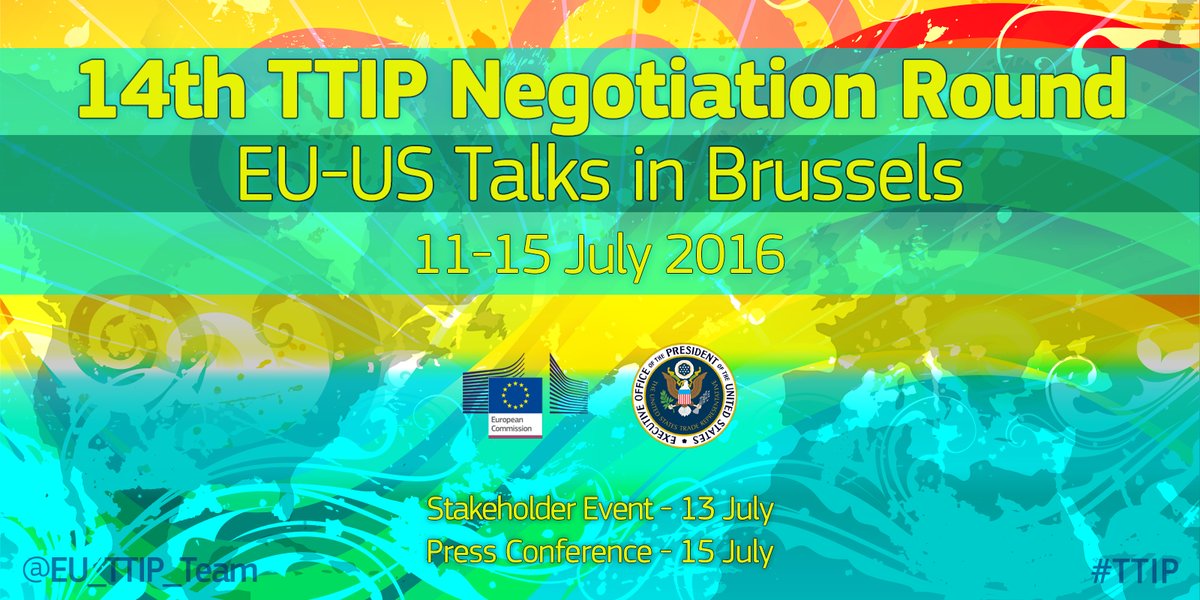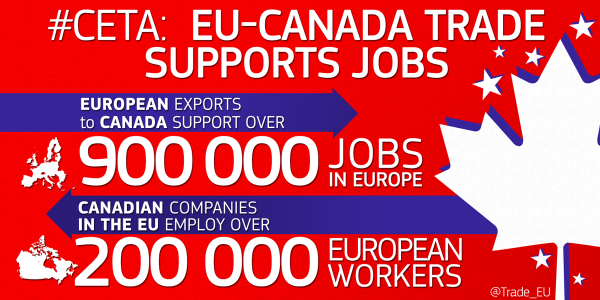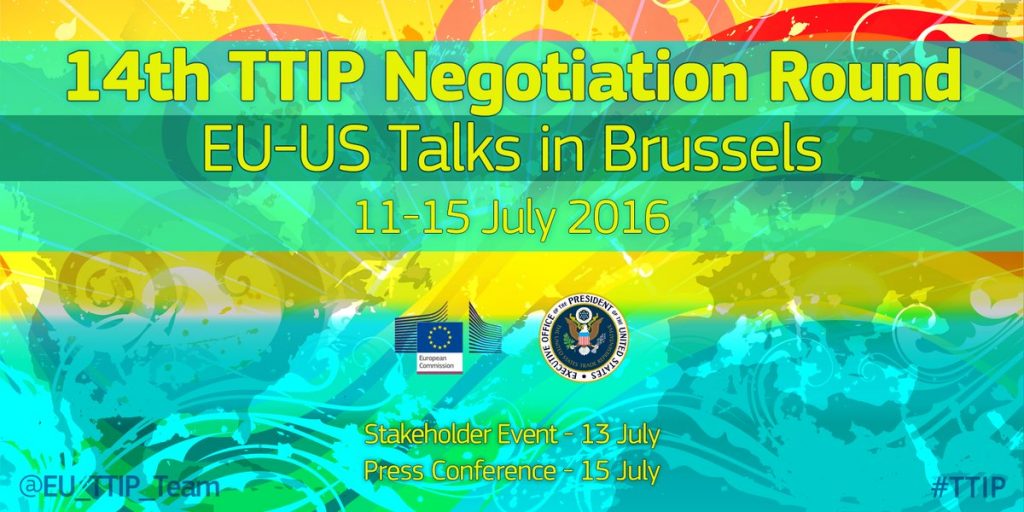
13 Reasons Why Breaking Up With The (E)U Is Hard To Do
“So you broke up with the EU? You have a blank space and you’re wondering if you’re ever ever getting back together? Never fear, Taylor Swift is here to walk you through your Brexit.”
The outcome of the British referendum brings up a lot of questions about the future of the country, the future of the European Union, their relationship to each other, and next steps. For a not so serious but seriously entertaining guide on Brexit, check out this new Atlantic Council Buzzfeed article.
In Focus
CETA’s Widespread Benefits
Earlier this week, the European Commission proposed the signing and conclusion of the Canada-EU trade agreement known as the Comprehensive Economic and Trade Agreement (CETA). CETA is being proposed as a “mixed” agreement which means that it has to be ratified with the consent of the European Parliament and all individual member states through their respective ratification procedures. The Commission’s goal is for the deal to be signed during the next EU-Canada Summit, in October. The next priority is to continue combating tax evasion and create fairer taxation policies. (European Commission)
Speeches & Announcements
President Obama on Trade in Address to the Parliament of Canada
“Very few of our domestic industries can sever what is now truly a global supply chain. And so, for those of us who truly believe that our economies have to work for everybody, the answer is not to try and pull back from our interconnected world; it is rather to engage with the rest of the world, to shape the rules so they’re good for our workers and good for our businesses.”
In his remarks to the House of Commons of the Canadian Parliament last week, President Obama spoke of the importance of free trade. He insisted that protectionism in the 21st century would only harm, not help, consumers. He highlighted the importance of the US trade relationship with Canada – the world’s largest bilateral trade relationship – but also spoke of the belated realization following Brexit that sealing a country off economically from other nations is very detrimental. (The White House)
Former USTR Criticizes Presidential Candidates’ Trade Stance
“We have a lot of trade agreements in the world. We ought to honor them all and when we start talking about tearing them up, that’s just nonsense…I’m just appalled at this loose language that is being thrown around today.”
Clayton Yeutter, the United States Trade Representative under President Ronald Reagan and Secretary of Agriculture under President George H.W. Bush, said Donald Trump’s views on trade were “appalling”, and also criticized Hillary Clinton for switching her position on the TPP. He fretted about the effect careless wrecking of trade agreements would have on future generations of consumers. (
POLITICO)
News
Upcoming Round of TTIP Talks
The fourteenth round of TTIP negotiations will take place in Brussels from July 11 to 15. European Union and United States chief negotiators will provide a detailed brief and engage stakeholders on the status of the negotiations on the 13th. The European Commission will answer press questions following the conclusion of the talks on the 15th. (
European Commission)
If you want to brush up on your knowledge of TTIP ahead of the 14th round, check out the European Commission’s overview here.
TTIP Action Partners
Would you like to hear how you can partner with the Atlantic Council and our trade work? Click here and learn more!
Recent Analysis
Econographic on the Importance of Transatlantic Trade
This week’s Atlantic Council EconoGraphic focuses on the impact of Brexit on transatlantic trade. As the United Kingdom might be starting to negotiate a complex and unprecedented departure from the European Union soon, the other 27 European member states still greatly benefit from a trade deal with the United States. It would affect 767 million people and forty-two percent of the world’s GDP. Even without the United Kingdom, the European Union remains the largest trading partner of the United States. (
Atlantic Council)
Trade Critiques on Campaign Trail Don’t Lead to Protectionist Policies
Writing for the
London School of Economics’ “US Centre”, Julia Gray argues that
“It’s always been politically expedient for a candidate to decry trade deals on the campaign trail and then quietly go about setting them up once in office.” Presidential candidates like President Obama and Secretary Clinton have criticized trade deals even if they voted for trade agreements while serving in Congress or in federal departments. (
London School of Economics)
United Kingdom Needs to Start Negotiating Free Trade Agreements
The
London Business School Review believes that the United Kingdom should prioritize initiating trade talks with the United States, China, Japan, as well as the 53 nations of the Commonwealth. With a UK-China free trade agreement (FTA), the United Kingdom’s expertise in services and high tech products will benefit China, and in turn China’s pivot to the European Union can help the United Kingdom improve relations with the European Union. The Commonwealth nations share historical ties, shared language, and institutions with the United Kingdom, which will help facilitate trade talks. (
Forbes)
TransPacific Partnership – News & Analysis
Remarks by Ambassador Michael Froman at the Cato Institute Forum
In his address at the
Cato Institute, United States Trade Representative Michael Froman cited numerous analyses that concluded that the majority of the benefits created through the TPP will manifest in higher labor wages. He also discussed an
International Trade Commission study which found that since the United States signed its first FTA in 1984, to the present day, trade agreements have created more American jobs and increased wages; increased innovation; given consumers lower prices and greater product variety; and granted the largest purchasing power gains to low and middle-income Americans. (
Office of the United States Trade Representative)
What Will Happen to the TPP in the Next Administration?
Senior fellow at the
Brookings Institution Joshua Meltzer believes that if Secretary Clinton is elected, the TPP will not officially pass for another few years because she intends to renegotiate components of it. She does, however, plan on eventually passing it, because it is key to the White House’s “pivot” to Asia. On the other hand, if Donald Trump were elected, the TPP would be
“just one of the casualties” of his completely different approach to traditional United States trade policy. (
CNBC)
Potential Clinton VP Pick Strongly Supports TPP
“Absolutely what we have done in the negotiations with Mexico and with Vietnam are I think some of the most far-reaching protections that we’ve seen in a labor agreement. And that’s the work that I have done and I’m proud of that work we’ve done.”
Labor Secretary Tom Perez, whom Secretary Clinton may select for the vice presidential position, still actively supports the TPP. He also said Clinton would do more to punish wrongdoers in trade agreements than Donald Trump would. (
POLITICO)
The Bigger Picture – Trade in Action
Slovakia Assumes Rotating EU Presidency
Slovakia took on the Presidency of the Council of the European Union on July 1, and will hold the title for the next six months. Slovakia has four main priorities for its tenure: to establish an economically strong Europe, a modern single market, sustainable migration and asylum policies, and a globally engaged Europe. (
EU2016)
Promising Outlook on Five Years of EU-Korea Free Trade Agreement
Since a EU-Korea FTA was signed in 2011, European Union exports to South Korea have increased by 55%, and European companies have saved €2.8 billion through removed or reduced customs duties. Bilateral goods trade between the two has been growing constantly since 2011, and reached a record level of over €90 billion in 2015. European Trade Commissioner Cecilia Malmström said:
“The evidence of our agreement with Korea should help convince the unconvinced that Europe benefits greatly from more free trade…This anniversary gives us many reasons to roll up our sleeves and conclude all other pending EU trade deals that are on the table.” (
European Commission)
Plenary Vote on Trade for All Policy
The European Parliament embraced the
“Trade for All” strategy and established additional goals. These include increasing transparency and opportunities for public feedback, strengthening the World Trade Organization, and devoting more resources to small and medium enterprises (SMEs). (
European Parliament)
Upcoming Events
14th Round of TTIP Negotiations – Stakeholder Events – July 13, in Brussels –
More Information
19th Round of Trade in Services Agreement (TiSA) Negotiations – July 8-18, in Australia – More Information
Conference: EU Trade Agreements in Practice – Making Trade Work for You – September 22, in Bratislava – More Information
Please send us suggested news stories, opinion pieces, publications, and upcoming events that you would like us to highlight!


